Episode 393: Andrew Mefferd and The Organic No-Till Farming Revolution; Plus State Focus: Georgia
March 20th, 2019
Podcast: Play in new window | Download
Subscribe: Apple Podcasts | Podcast Index | RSS | More
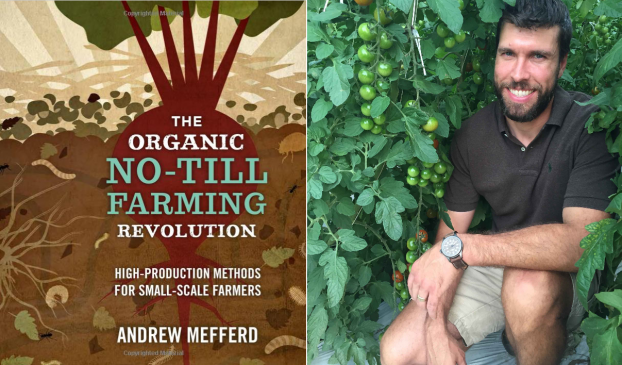
As an avid flower gardener, I love learning from the pro’s — flower farmers whose methods and practices often influence my own backyard steps to growing cut flowers. Some of the techniques used on commercial flower farms are not in my toolbox, which only makes me hungrier to learn from those growing flowers day in and day out.
No-Till Farming is one such technique. I’ve heard flower farmers discuss the No-Till approach and I also *thought* I knew what the term meant.
However, thanks to today’s guest and his new book, I now have more understanding and much deeper insights about the term and why it’s one worth considering for your flower-growing enterprise.
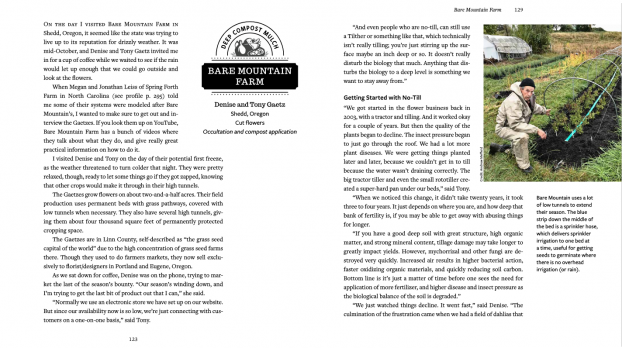
Our guest today is Andrew Mefferd, author of the brand new book The Organic No-Till Farming Revolution — High Production Methods for Small-Scale Farmers.
Andrew is the editor of Growing for Market magazine. He has spent 15 years working on farms in six states, including a year working on a no-till research farm. He worked for seven years in the research department at Johnny’s Selected Seeds.
Andrew travels around the world consulting with researchers and farmers on the best practices in greenhouse growing and sustainable agriculture. He is the author of The Greenhouse and Hoophouse Growers’ Handbook and he has a passion for cooking and promoting local farming. Andrew lives and farms in Cornville, Maine.
I first met Andrew after he acquired Growing For Market from founder Lynne Byczynski. Later, I contributed a few articles about Slow Flowers topics for Growing For Market and had the pleasure of witnessing Andrew’s passion for farming education and advocacy.
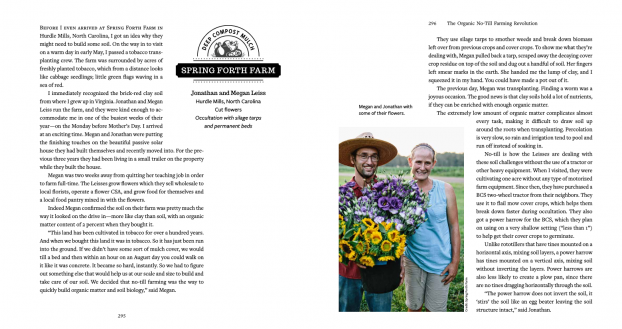
I wanted Andrew to come onto the Slow Flowers Podcast to talk about his new book, especially after Jonathan Leiss of Spring Forth Farm posted on Instagram that he and Megan and their No-Till Flower Farming methods are included in the new book. I’m so pleased that Andrew interviewed and profiled a number of Slow Flowers members about their farming practices for this essential guide.
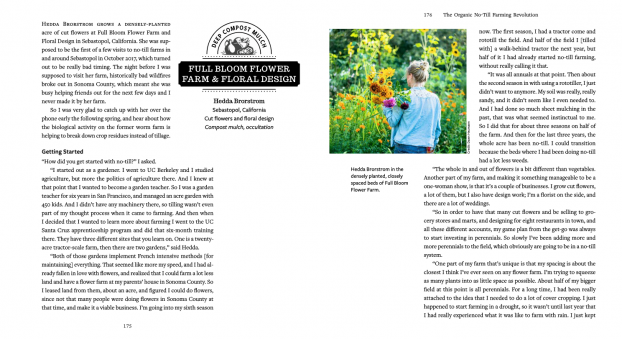
I appreciate that he considers floral agriculture as an equally viable pursuit for anyone who wants to farm. It’s not all about veggies and produce in this man’s view. In fact, Growing for Market, inspired by founder Lynne Byczynski, has always made space in its pages for flower farming.
Before I turn to my extended conversation with Andrew, I want to let you know that New Society Publishers has donated a copy of The Organic No-Till Farming Revolution book for us to give away.
Follow Andrew Mefferd at these social places:
Growing for Market on Facebook
Growing for Market on Instagram
Thanks so much for joining me today. If you want to be entered into our random drawing to win a copy of Andrew’s new book, make a comment about the best tip that Andrew shared in our conversation.
We’ll draw one name from all those who comment before midnight Pacific Time this Saturday, March 23rd.

To purchase the book, use the coupon code slow before the end of April. Andrew has set up the 20-percent-off discount code for anything you purchase, subscribe or renew in the Growing for Market Bookstore.

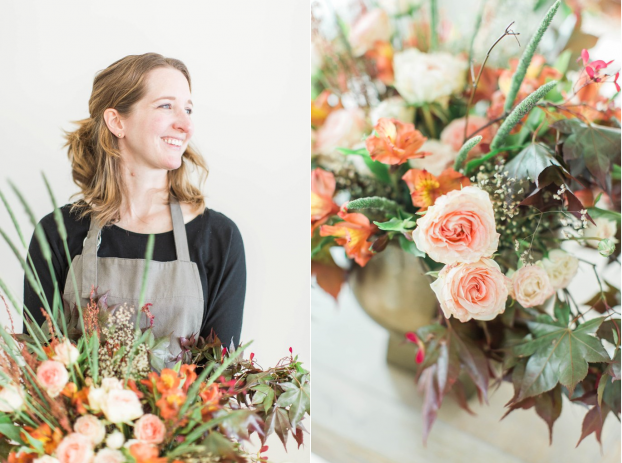
Our theme for 2019 – Fifty States of Slow Flowers – continues today, with Holly Duncan of Georgia-based Floretry.
As owner and lead designer of Floretry, Holly carefully curates luxury florals for weddings and private event clients and is located in Roswell, just north of urban Atlanta, Georgia. With more than 20 years of experience, Holly pairs lush blooms with seasonal textures and colors to create sensory floral designs.
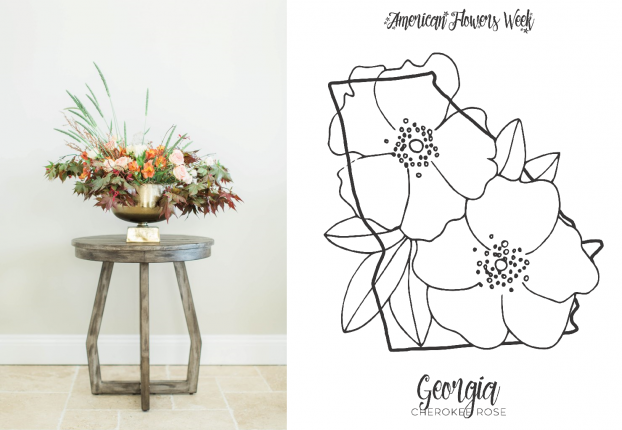
A keen listener and client partner, she goes the extra mile to elevate her clients’ vision and reflect their personalities, creating a floral experience beyond their expectations. Wherever possible, Holly advocates use of seasonal and local, American-grown flowers in her designs. You may even catch a glimpse of her foraging roadside for elements that add a special and one-of-a-kind touch to her clients’ events.
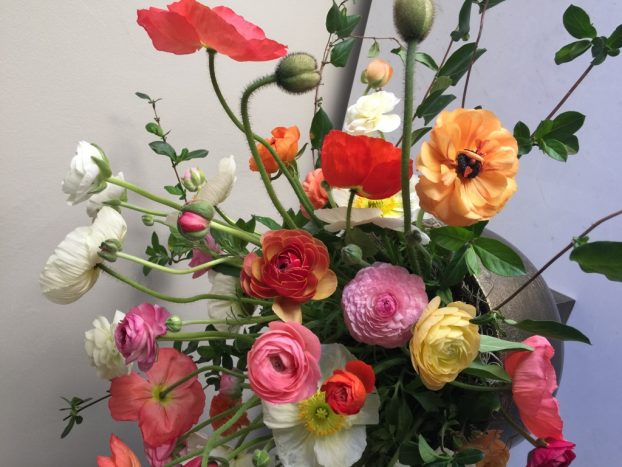
Find and follow Holly at these social places:
Thanks so much for joining me on this journey, seeking new and inspiring voices, people with passion, heart, commitment and expertise to share with you. I hope today’s episode gave you at least one inspiring insight or tip to apply to your floral enterprise. What you gain will be multiplied as you pay it forward and help someone else.
Truly, we have a vital and vibrant community of flower farmers and floral designers who together define the Slow Flowers Movement. As our cause gains more supporters and more passionate participants who believe in the importance of the American cut flower industry, the momentum is contagious.
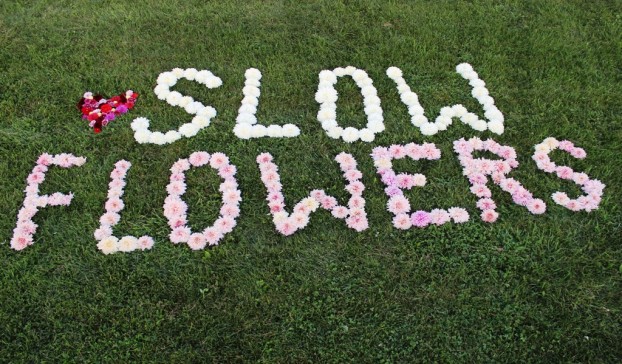
I know you feel it, too. I value your support and invite you to show your thanks and with a donation to support my ongoing advocacy, education and outreach activities. You can find the donate button in the column to the right.
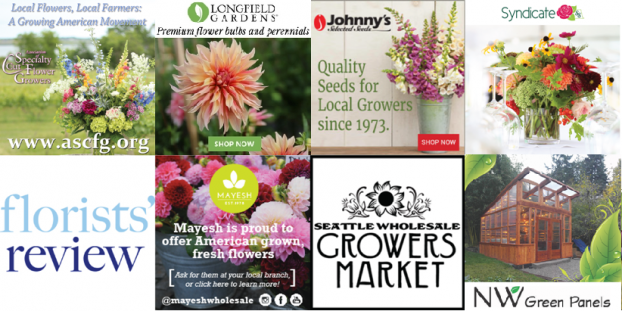
THANK YOU TO OUR SPONSORS, including today’s spotlight supporters:
Florists’ Review magazine. I’m delighted to serve as Contributing Editor for Slow Flowers Journal, found in the pages of Florists’ Review. It’s the leading trade magazine in the floral industry and the only independent periodical for the retail, wholesale and supplier market. Take advantage of the special subscription offer for members of the Slow Flowers Community.
Johnny’s Selected Seeds, an employee-owned company that provides our industry the best flower, herb and vegetable seeds — supplied to farms large and small and even backyard cutting gardens like mine. Check them out at johnnysseeds.com
Longfield Gardens, which provides home gardeners with high quality flower bulbs and perennials. Their online store offers plants for every region and every season, from tulips and daffodils to dahlias, caladiums and amaryllis. Spring bulb season is almost here – my tulips are poking out of the ground already! Visit Longfield Gardens at longfield-gardens.com.
Mayesh Wholesale Florist. Family-owned since 1978, Mayesh is the premier wedding and event supplier in the U.S. and we’re thrilled to partner with Mayesh to promote local and domestic flowers, which they source from farms large and small around the U.S. Learn more at mayesh.com.
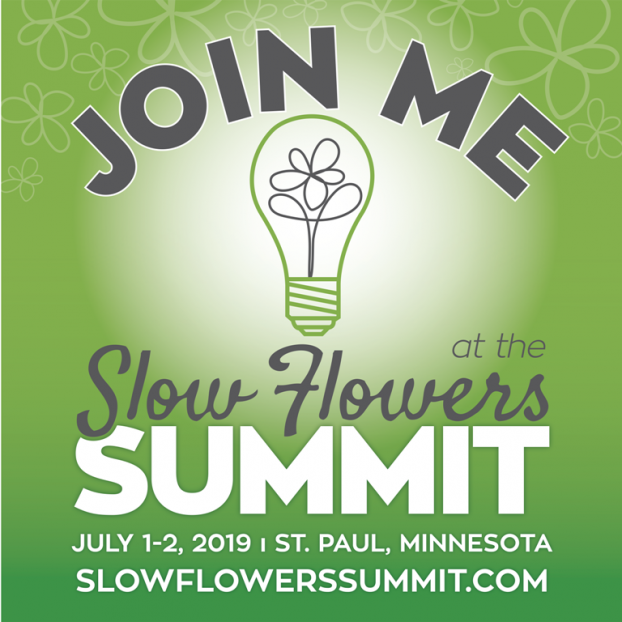
The Slow Flowers Summit is coming up soon — on July 1st & 2nd in St. Paul, Minnesota. More than half of the registration slots have been grabbed, so don’t miss out on this opportunity to join with Slow Flowers thinkers and doers in person.
One of our past year’s speakers dubbed the Summit a “floral mind meld,” and I love that concept. Come and be a part of the incredible and uplifting experience! You can make your way to slowflowerssummit.com to learn all about the many opportunities to join us — from flower farm tours and dinner on a flower farm to business and branding presentations to interactive and inspiring design sessions . . . all designed to serve you! Subscribe to Summit news and updates at slowflowerssummit.com.
Here’s our latest March newsletter with updates on the Slow Flowers Summit, including details on lodging and a new speaker Q&A!

The Slow Flowers Podcast has been downloaded more than 425,000 times by listeners like you. Thank you for listening, commenting and sharing – it means so much. Thank you all!
I’m Debra Prinzing, host and producer of the Slow Flowers Podcast.
Next week, you’re invited to join me in putting more American grown flowers on the table, one vase at a time. And If you like what you hear, please consider logging onto iTunes and posting a listener review.
The content and opinions expressed here are either mine alone or those of my guests alone, independent of any podcast sponsor or other person, company or organization.
The Slow Flowers Podcast is engineered and edited by Andrew Brenlan. Learn more about his work at soundbodymovement.com.
Music Credits:
Bending the Reedby Gillicuddyhttp://freemusicarchive.org/music/gillicuddy/
https://creativecommons.org/licenses/by-nc/3.0/
Betty Dear; Gaena; Perspirationby Blue Dot Sessionshttp://www.sessions.bluehttps://creativecommons.org/licenses/by-nc/4.0/
Lovely by Tryad http://tryad.bandcamp.com/album/instrumentals
http://creativecommons.org/licenses/by-sa/3.0/
In The Field
Music from:
audionautix.com









March 20th, 2019 at 10:45 am
The best tip that Andrew gave, imho, was that each farm should experiment and find what works for their farm!
March 20th, 2019 at 12:11 pm
I liked how he advises putting the tarp over the plant debris and letting it compost itself. It helps add more organic matter to the soil without the extra work. It’s a great tip to use on all beds year after year.
March 20th, 2019 at 12:28 pm
[…] not in my toolbox, which only makes me hungrier to learn from those growing flowers day in […]Episode 393: Andrew Mefferd and The Organic No-Till Farming Revolution; Plus State Focus: Georgia this post has been replublished from the original […]
March 20th, 2019 at 12:45 pm
Love the occultation – I didn’t realize this was an official “method”, I was just being lazy not wanting to weed or till!
March 20th, 2019 at 4:52 pm
No-till is the way nature has always done it ^^ I’m not surprised there’s merit to it!
March 20th, 2019 at 7:35 pm
Loved the podcast! I have built lasagna beds for years but never on a large scale. The biggest tip I heard today was using clear plastic for quick solarization of the planting site. Definitely going to use that this next week as I prepare my planting site.
March 23rd, 2019 at 11:47 am
Thanks for all the tips. Great episode! Tarping, in particular, is such an easy thing but something I need to do more of.
March 23rd, 2019 at 4:41 pm
So timely! Listened to this podcast while tackling our new acres. Bumping up from super-small urban flower growing to acreage is full of challenges and has me questioning my methodologies. I want this new land to be No-Till but there are so many other growers around me telling me this is a fantasy. Andrew’s best tip for me was witnessing for himself how the absolute pro growers at Bare Mountain Farm simply covered sunflowers beds, stalks and all, with tarps and let their ground peeps do the work. Yes! I can do that.
March 23rd, 2019 at 7:01 pm
A clear tarp for one sunny day in the 70 F range kills off lots of germinating weeds. Eureka!
On another note, I had a vivid flashback of my father’s farming practices and equipment when Andrew said he realized during his early farming experience that he was spending way too much time on a tractor. I remember my Dad working our fields with a disc harrow and spring tooth harrow and spending a lot of time on the tractor. And I remember all us kids weeding our huge vegetable garden. If only we’d known about no-till farming!!! Love Andrew’s passion for this subject.